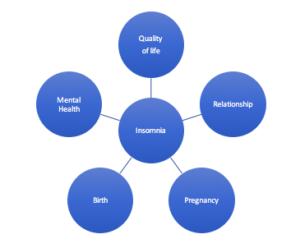


Five weekly individual sessions of CBT-I will be delivered in person or via telehealth depending on physical distancing guidelines.
#Sleep insomnia pregnancy trial
MethodsĪ two-arm, single-blinded, parallel group randomized controlled trial (RCT) design with repeated measures will be used to evaluate the impact of CBT-I compared to TAU among a sample of 62 pregnant women, enrolled between 12 and 28 weeks of gestation, who self-identify as experiencing insomnia. The aims of this trial are to evaluate the impact of the Sleeping for Two adaptation of CBT-I in pregnancy (in-person or telehealth) versus treatment as usual (TAU) in reducing symptoms of insomnia (primary outcome), as well as increasing gestational length and reducing symptoms of depression (secondary outcomes). With increased distress and limited access to services during the COVID-19 pandemic, there is also an unprecedented need for telehealth delivery of treatment programs for pregnant women. There is limited research examining the effectiveness of cognitive behavioral therapy for insomnia (CBT-I) during pregnancy. Insomnia and sleep disturbances are common in pregnancy and have potentially significant consequences for both maternal and infant health.


 0 kommentar(er)
0 kommentar(er)
